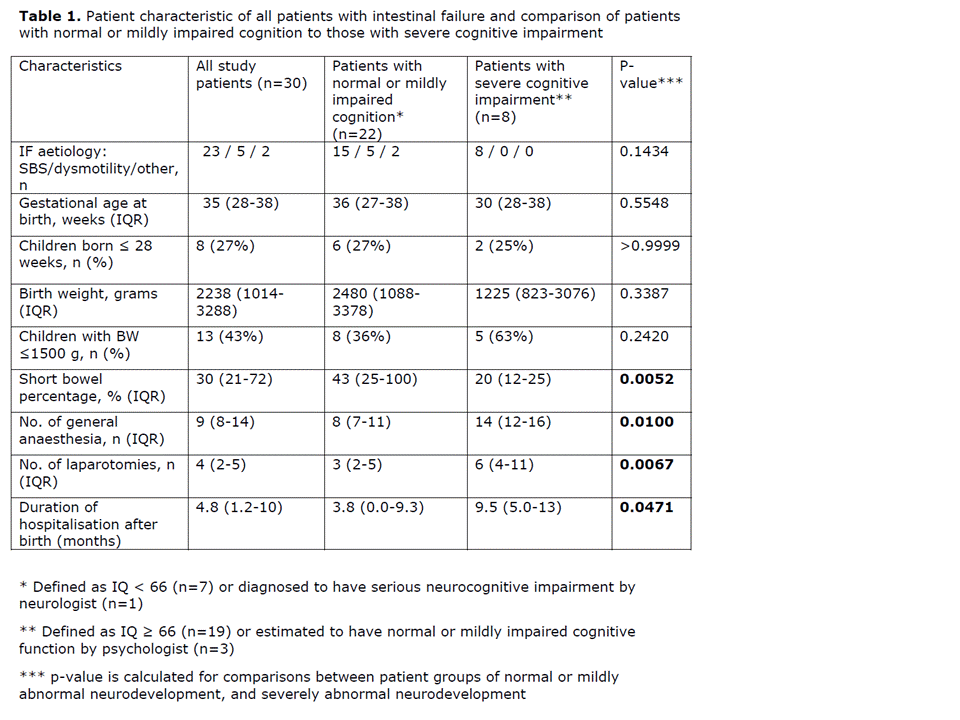Introduction: Children with intestinal failure (IF) are at risk of neurodevelopmental problems due to underlying disease, multiple operations, inadequate nutrition and prolonged hospitalisation. In this study we searched for prevalence of neurological impairment among children with IF and its´ association with risk factors.
Methods: We conducted a prospective cross-sectional study at the nationwide tertiary referral IF centre of the Helsinki University Children´s Hospital during 2017 and 2018. IF patients aged three to sixteen years (n=40) were invited to participate. Those with genetic syndrome or severe neonatal intracerebral haemorrhage (n=12) were excluded. IF was defined as less than 50% of small intestine remaining or requirement of parenteral nutrition for more than three consecutive months. The cognitive and motor skills were evaluated using validated tests; Wechsler Preschool and Primary Scale of Intelligence (WPPSI-III), Wechsler Intelligence Scale for Children (WISC-IV) and Movement Assessment Battery for Children, 2nd edition. To investigate the associations for severe neurocognitive impairment, children who had IQ <66 or serious neurocognitive impairment (n=8, 27%) were compared to those who had IQ ≥ 66 or were estimated to have normal or mildly abnormal cognitive function (n=22, 73%).
Results: Median age of participants (n=30, males=24) was 7.5 (range 3 to 16) years. The median IQ, VCI and PRI scores were 78 (IQR 65-91), 74 (IQR 60-92) and 79 (67-91) respectively. Ten (35%) patients had an IQ score under 70 (-2 SD), compared to 2.2 % in the normative population. The motor impairment was significant in 10 patients (36%) and milder in 8 (28%) patients. The patient characteristics and comparisons of the patients with severe neurocognitive impairment with others are presented in table 1. The children with severe neurocognitive impairment had less remaining small bowel, greater number of laparotomies and general anaesthesia and longer hospitalisation after birth than others. Children whose PN was started after the age of 12 months had normal median IQ of 96 (86-105), whereas median IQ was 74 (60-85) in children whose PN was started early after birth (P=0.0045).

Conclusion: Clinically significant cognitive and motor impairments are common among paediatric IF patients whose disease manifested during neonatal period. We strongly recommend systematic neurological assessment of all children with IF.
.jpg )